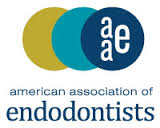Did you know that any hormonal changes within your body can have an effect on your oral health? That includes puberty, pregnancy, and menopause, as your body is affected by hormonal changes during all of them. Hormonal fluctuations, particularly when your hormones surge, can influence the way your gingival tissue reacts to cavity-causing bacterial plaque that forms throughout the day on your teeth and along your gumline.
Pregnancy Gingivitis
Bacterial plaque builds up on your teeth every day. That’s why we brush and floss to remove it. If it is not removed in a timely manner it can harden into tartar, which can only be removed via a professional cleaning. Tartar on your teeth and along your gumline leads to cavities and gingivitis, the earliest stage of gum disease. During pregnancy, your gums are overly sensitive to the bacteria and acids that plaque contains, and therefore, many women develop what is called “pregnancy gingivitis.” If you happen to already be suffering from gingivitis, however, it is likely to be exacerbated during pregnancy. Symptoms of gingivitis include red, swollen, tender gums that bleed when you brush or floss.
How To Care For Your Teeth During Pregnancy
Pregnancy is a time when you should pay more attention to your oral health. You can help prevent “pregnancy gingivitis” from developing by doing the following:
- Rather than brush only in the morning and before bed, brush after each meal to remove leftover sugars and food debris that harmful oral bacteria feed on. Also, floss once a day.
- Brush with a fluoridated toothpaste to strengthen your tooth enamel against harmful bacteria.
- If you can’t brush due to morning sickness, use an antiplaque and fluoride rinse, or rinse your mouth with water at the very least. This can help remove plaque and food debris if it is impossible to brush.
- Add foods that contain vitamins B12 and C to your diet, or take supplements.
- Don’t skip out on your regularly scheduled dental cleanings.










